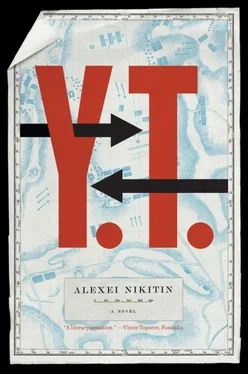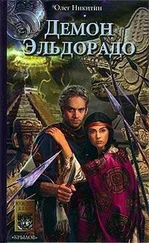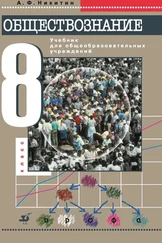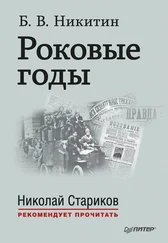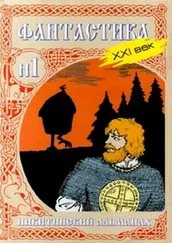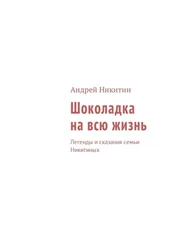In fact, they weren’t friends at all, but still Kurochkin tried to help him. Then there was the thing about Nedremailo’s daughter. People in the department had called him a ladies’ man to his face—he had three daughters. His eldest was seriously ill. She must be the one he referred to the night before. I don’t know what made me latch on to this. And then there was Belokrinitskaya. Nedremailo didn’t actually say when she’d asked for the folder, but I wanted to know. I wasn’t indifferent to anything about her. Not that I was a one-woman man. After all, it hadn’t been love but a youthful infatuation tinted with rivalry and passion. I think she knew as much. Natasha was a smart girl. And I remembered her rather than the women that followed probably because Natasha was the emblem of those two short years at university. I probably wasn’t the only one who felt that way. We were expelled during our second year, and a few weeks later we were living completely different lives.
I don’t know how else to explain it. Once in the mid-1990s at a bar in a Moscow hotel I met an old black-marketeer (if anyone still remembers what that means). His name was Hussein. In the 1970s he started manufacturing and selling plastic lighters. The bodies were churned out in Baku and the metal components in Riga. The lighters were sold throughout the Soviet Union, in big cities and at train stations, and they sold particularly well in resorts. At the time Hussein had been living in Azerbaijan, where he was arrested and given fourteen years, but he was released after the start of perestroika. Then he moved to Uzbekistan and went into business again, but this time it wasn’t going so well. Hussein had come to Moscow for money; he wanted to get a loan secured on his home and business. All evening he told me how he had done business in his day. He showed me a photocopy of a newspaper article a quarter of a century old. The article was about him. It said ‘the illegal manufacture of material goods’ by Hussein had cost the government several million roubles (the figure in the article was precise right down to the kopeck). Hussein was proud of the article, the figure and even his prison sentence. He was a spry, cheerful old man on the whole, and the only time he turned gloomy that evening was when the conversation turned to Kiev.
‘I don’t like Kiev,’ he said resolutely and poured some vodka. ‘I’ve only been there once. My wife and I spent two weeks in a hotel with a balcony that looked right out over the Dnieper. The hotel was a semi-circle right on the banks of the river—’
‘Probably the Slavutych,’ I mused.
‘I can’t remember. Maybe. It was September, warm and lovely. I would go out on to the balcony, and there before me was this beautiful, verdant city with all these churches. We ate only in restaurants and had ourselves a very relaxing time. That’s how we spent those two weeks.’
‘And then what?’
‘Then I went home. And the next day I was arrested. So for the next fourteen years in prison I remembered that balcony and the river and the churches on the opposite bank… Forgive me, but I don’t like Kiev.’
I felt like that about Belokrinitskaya, but in reverse. She’d left a long time ago. First she’d gone to Norway, but I no longer knew where she was or what she was doing.
Seven cups of coffee later—I didn’t wash the cups; I lined them up on the kitchen table: four coffee cups left over from my parents’ service, two tea cups purchased at random and one big mug—I put the conversation with Nedremailo back where it had come from: back into its box. And turned on the computer.
Another e-mail addressed to Istemi had arrived, cc’d to: the President of the United Islamic Caliphates, Caliph Al-Ali; the Lama of Mongolia, Undur Gegen; and the Emperor of the Holy Roman Empire, Karl XX.
‘My dear esteemed comrade monarchs, dictators and presidents,’ wrote President of the Slovenorussian Federation, Stefan Betancourt, in a cavalier voice,
As you know, history with a capital H has come to an end. It has been deposited in a pawnshop for safekeeping and scattered with mothballs. But our own history came to an end even before that, twenty years ago, so let’s not flog a dead horse. Let it rest in peace. There is no one for us to bear grudges against and no one to petition for compensation for moral damages. And no reason for doing so. I, at any rate, have no intention of doing so. If anyone has any questions, I suggest that we meet. As for everyone else, please leave me in peace. According to the rules it is now my turn. I shall not take it, nor shall I pass it to the next player. I will tell you one more time: the game is over. Forget about it.
I read the letter once, then I read it again. It was written in a panic. If Kurochkin had written it by hand the letters would have jumped on the page, colliding with one another and sticking together in illegible lumps. He was thoroughly spooked. In a normal state of mind he simply couldn’t have written so much nonsense in such a short space. And then there was this morning’s telephone call. Something had happened. There was no doubt about it. Something seriously unpleasant. Far more serious than anything he had told me. If so, I ought to put some distance between us. Get away and watch what happened next from the sidelines. You can see better as an onlooker.
Not exactly a heroic attitude, I have to admit. Twenty years ago I would have behaved differently. I would have rushed to poor Kurochkin to find out what was wrong. I would have sifted through possible solutions, sought the right people, money, ways out. You don’t abandon a friend in need… But it was all different now. Before ending up in my safe bottling factory I’d struggled against the current for six years, trying to surface for air right in the middle of the rapids. I couldn’t do it. I couldn’t swim free, but at least I didn’t drown. I had worked for four private firms, in three of which I had been a founding member. We were beaten in different ways, but the end result was always the same. And if the first three times I remained steadfast, investing my strength, money and life in my friends, regardless of whether they were genuine friends or just happened to be on the same side of the line separating us from the bandits, cops and outright bad guys who came to take our business away, then the fourth time I didn’t bother. The first three times, coupled with my observations of those around me, had been enough. So when Steve Malkin’s predecessor offered me money and a job in exchange for information about my client firms I accepted the offer. And for five years now I had lived a peaceful life.
What Kurochkin shared with the Americans—or more importantly, his colleagues here—and what rules they played by, I didn’t know, and I didn’t want to know. There was no need for him to shout that the game was over. I could hear him. If it’s over, then it’s over. What was he shouting for?
I managed to convince myself. It wasn’t too hard. I already knew I wasn’t going to jump into the fire, not for chestnuts or bananas or fried baboons. I wouldn’t jump in there for Kurochkin or anyone else. My instinct for self-preservation had not let me down yet. But I was ashamed. Even if you put aside an old friendship, however ephemeral and weakly demonstrable, I still owed a lot to Kurochkin. He’d stepped in for me more than once. Sometimes it was small stuff, but other times it was serious. And he brought me to Steve Malkin’s office before Malkin himself knew he was coming to Ukraine. Even my peaceful, comfortable existence I owed in part to him.
I skimmed the letter once more. Kurochkin had left all the e-mail addresses visible: mine, the Hotmail address the ultimatum was sent from three days before and another, apparently Kanyuka’s. Only three. Reingarten at Frunze 103 was unlikely to have access to e-mail. I e-mailed Kanyuka: ‘Vadik, we must meet. Davidov.’ I didn’t know where he lived or what he had been doing for the past ten years, but we had to meet. Then I found Nedremailo’s business card, drank my eighth cup of coffee and dialed his home telephone number.
Читать дальше
